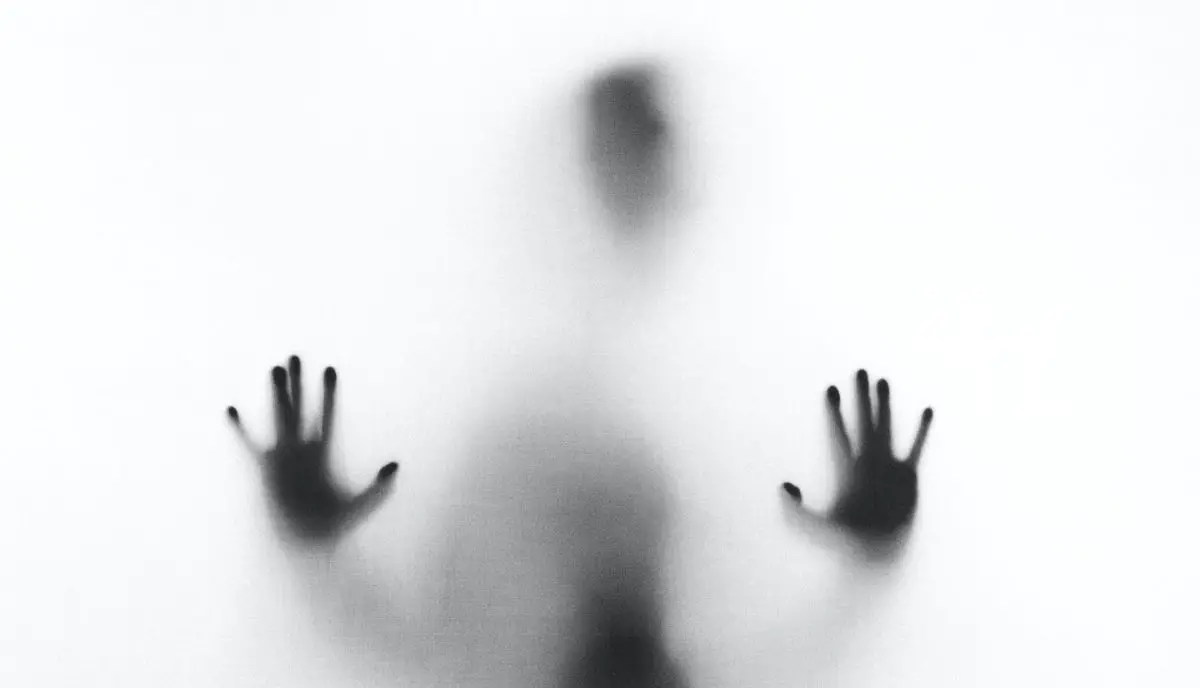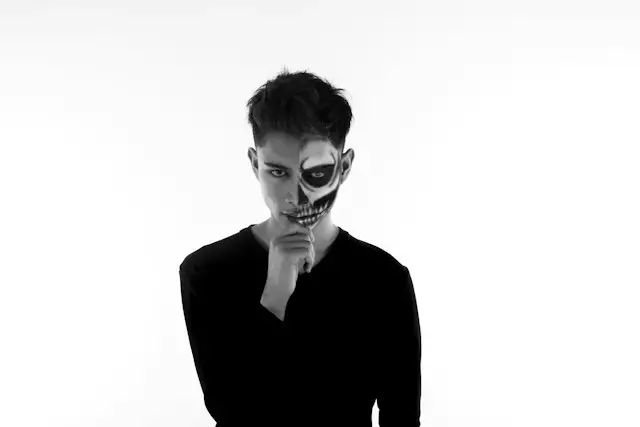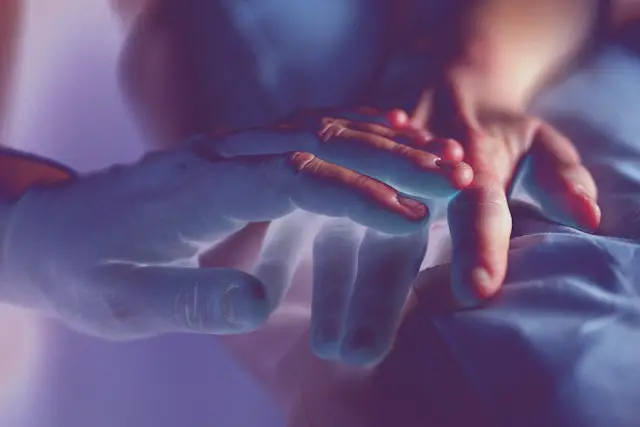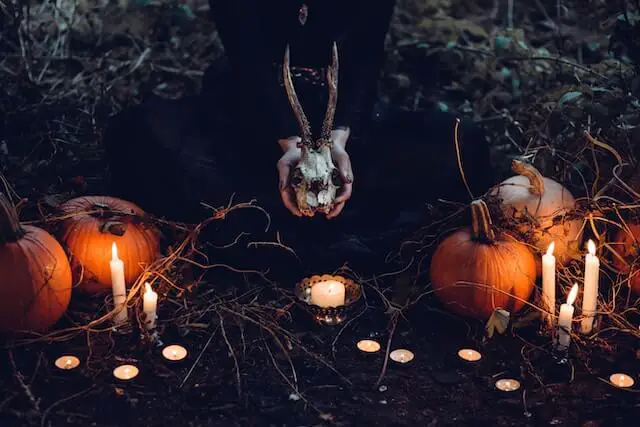Have you ever stopped to ponder the mysterious allure of shadows? These elusive silhouettes that dance around us aren’t just empty spaces where light can’t reach.
Instead, they weave a complex story, rich with symbolism and hidden meanings.
Let’s uncover shadow symbolism together, where darkness and light aren’t just opposites but are intricately connected, unveiling the deeper, often overlooked aspects of our lives.
Shadow Symbolism

When we think of shadows, we often associate them with darkness, mystery, and fear. However, in many cultures, shadows have a deeper symbolic meaning that represents the afterlife and dark magic.
Let’s explore some of the most common interpretations of shadow symbolism.
Fear and Threat
Imagine walking alone at night; the shadows around you seem to grow and twist. This feeling captures the essence of shadows as symbols of fear and threat. Shadows, shrouded in mystery, often stir our deepest anxieties.
They’re like those unspoken fears that hover in the back of our minds, threatening to engulf us in darkness. The unknown nature of shadows makes them both intriguing and spine-chilling, a perfect representation of our innate fears.
Alter Ego or Secret Identity

Think about a superhero with a secret identity. Similarly, shadows in stories often hint at an alter ego or a hidden aspect of a character.
In many narratives, a character’s shadow reveals a darker, more complex side that they conceal from the world. It’s like a visual metaphor for the parts of ourselves that we’re reluctant to show in public.
This darker self can be more powerful, sometimes more authentic, and often more intriguing than the persona displayed in the daylight.
Read Also: Fog Symbolism
Illusion
Another popular symbolsim of shadows is an illusion. In many cultures, shadows are seen as a trick of the light, an illusion that is created when light is blocked by an object.
This interpretation can be seen in the phrase “shadow of a doubt”. It’s about suspicions and uncertainties that don’t necessarily have a basis in reality. Shadows in this sense are like visual riddles – they make you question what’s real and what’s merely a trick of the light.
Afterlife

In various cultures, shadows bridge the world of the living and the afterlife. Like in Greek mythology, where a shadow was thought to be a soul’s reflection. The concept of a “shadow realm” often represents a mysterious, in-between state.
It’s a realm that’s neither here nor there, a space that links life with the unknown mysteries of death. In this context are more than just an absence of light; they’re spiritual enigmas.
Hidden or Unconscious Aspects of the Self
One of the most common interpretations of shadow symbolism is that it represents the hidden or unconscious aspects of the self. This can include repressed emotions, desires, and memories that we may not be consciously aware of.
Just like a shadow that’s always present but not always noticed, these aspects are an integral part of who we are, silently influencing our actions and reactions. They’re the feelings we brush off, the wishes we don’t admit to, and the past events we’ve pushed out of our conscious mind.
Duality
Shadows can also represent duality. Just as light cannot exist without darkness, shadows remind us of the constant balance in life.
They represent the other half, the unseen and often unacknowledged side of reality. It’s like the yin-yang symbol, where light and dark coexist, each side defining and complementing the other.
Dark Magic

Finally, shadows often take center stage in tales of dark magic and mysticism. They’re tied to stories of witches, wizards, and unknown mystical forces.
This interpretation can also be seen in literature and film, where shadows are often used to create an eerie or ominous atmosphere.
Shadow Symbolism in Different Cultures
Shadow symbolism has played a significant role in various cultures throughout history. Here are a few examples of how different cultures have interpreted the symbolism of shadows:
- Ancient Greeks: In Greek mythology, shadows were believed to be the souls of the dead. They were thought to be able to move freely between the world of the living and the world of the dead.
- Native Americans: Many Native American tribes believed that shadows were an important part of the spiritual world. They believed that shadows could be used to communicate with the spirit world and that they could be used to protect oneself from evil spirits.
- Chinese: In Chinese culture, the shadow is seen as a symbol of the self. It is believed that the shadow represents the hidden parts of the self that need to be brought into the light.
- Egyptians: In ancient Egypt, shadows were believed to be a physical representation of the soul. The Egyptians believed that the shadow was an essential part of the self and that it could be used to protect oneself from harm.
Dreams About Shadows and Their Meanings
Dreams about shadows can be unsettling, but they can also provide valuable insight into your subconscious mind. Here are some possible interpretations of dreams about shadows:
- Fear and anxiety: Shadows in dreams can represent fear and anxiety. If you feel threatened by the shadow in your dream, it could be a sign that you are feeling anxious or insecure about something in your waking life.
- Hidden aspects of yourself: Shadows can also symbolize hidden aspects of yourself that you may not be aware of or don’t want to acknowledge. According to insidemydream.com, shadows can represent “the parts of ourselves that we haven’t fully come to terms with.”
- Transformation: Dreams about shadows can also signify transformation and change. According to dreamchrist.com, “This dream warns you about situations of conflict and transformation.”
- Protection: In some cases, shadows can represent protection. They can obscure vision and hide things from view, which can be helpful in some situations.
- Deceit and treachery: On the other hand, shadows can also convey darker symbolism, such as deceit and treachery. In literature and films, shadows often create suspense and foreboding, adding depth to storytelling.
It’s important to note that the meaning of a dream about shadows can vary depending on the specific context of the dream. If you’re unsure about the meaning of your dream, it may be helpful to keep a dream journal and reflect on your emotions and experiences in your waking life.